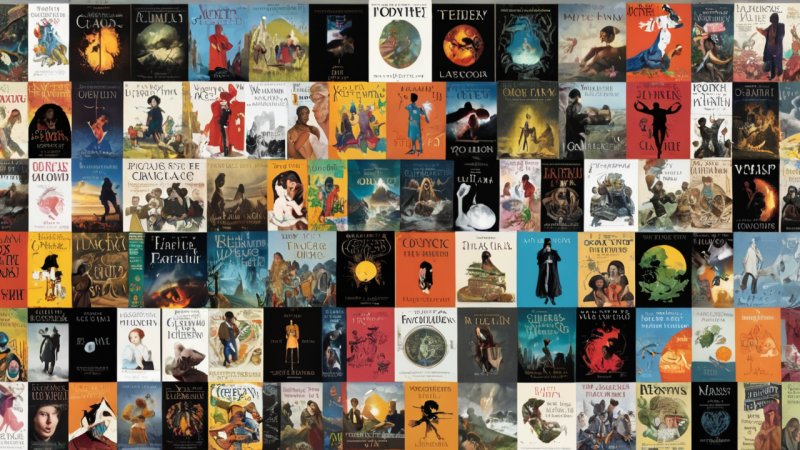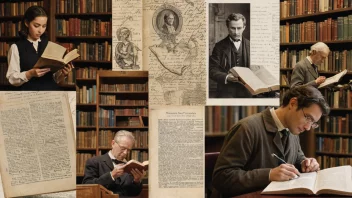Fiction has long been a powerful vehicle for exploring human experience, reflecting societal values, and even influencing public opinion. Through imaginative storytelling, writers have the ability to create vivid worlds that not only entertain but also challenge readers to think critically about the realities they inhabit. In a time when narratives can be manipulated or distorted, fiction stands as a pillar of truth and a mirror to society. This article delves into how fiction shapes societal narratives, the themes it explores, and its impact on cultural consciousness.
Fiction as a Reflection of Society
Throughout history, fiction has served as a reflection of the society from which it originates. Authors often draw from the realities of their time, embedding social norms, struggles, and triumphs within their narratives. For instance, Charles Dickens' works highlighted the plight of the poor during the Industrial Revolution, while Jane Austen's novels critiqued the social structures of her era. The ability of fiction to mirror societal dynamics allows readers to engage with the material in a way that is both relatable and insightful.
Challenging Dominant Narratives
Fiction also plays a critical role in challenging dominant narratives and advocating for marginalized voices. Through storytelling, authors can subvert traditional power structures and present alternative viewpoints. Works such as Toni Morrison's Beloved or Chimamanda Ngozi Adichie's Half of a Yellow Sun confront historical injustices, giving voice to those whose stories have often been sidelined. This not only fosters empathy among readers but also encourages societal reflection and dialogue about issues of race, gender, and class.
Creating Empathy and Understanding
One of the most significant impacts of fiction is its ability to cultivate empathy. By immersing readers in the lives and experiences of characters, fiction offers a unique opportunity to understand perspectives that may differ from their own. This emotional connection can lead to greater compassion and understanding of diverse experiences and cultures. For instance, reading Khaled Hosseini's The Kite Runner allows readers to engage with the intricacies of Afghan culture and the personal ramifications of war, prompting a deeper appreciation for global issues.
Fiction as a Catalyst for Change
Fiction can also serve as a catalyst for social change. Many authors use their platforms to address contemporary issues, raising awareness and inspiring action. George Orwell's 1984 serves as a cautionary tale about totalitarianism and surveillance, prompting readers to reflect on the implications of government overreach. Similarly, Margaret Atwood's The Handmaid's Tale has become a symbol of resistance against patriarchal oppression, sparking discussions about women's rights and autonomy. These works not only entertain but also motivate readers to engage with the world around them.
Fiction in the Digital Age
The rise of digital technology has transformed how fiction is consumed and shared, leading to new societal narratives. Online platforms and social media have democratized the literary landscape, allowing diverse voices to emerge and resonate with wider audiences. Fan fiction, for instance, enables readers to reinterpret established narratives, offering new insights and alternative endings that reflect contemporary issues. This evolution of fiction challenges traditional boundaries, encouraging innovation and inclusivity in storytelling.
The Future of Fiction and Society
As we move forward, the relationship between fiction and societal narratives will continue to evolve. The ability of fiction to address pressing global issues, such as climate change, political unrest, and social justice, will be paramount. Emerging authors are already tackling these themes, ensuring that literature remains relevant and reflective of the times. Moreover, the intersection of fiction with other media—such as film, television, and video games—will further shape how narratives are constructed and consumed, expanding the impact of storytelling beyond the written word.
In conclusion, fiction plays an indispensable role in shaping societal narratives, reflecting cultural values, challenging dominant paradigms, and fostering empathy among readers. Through imaginative storytelling, authors not only entertain but also provoke thought and inspire change. As we continue to navigate a complex world, the importance of fiction as a tool for understanding and transformation cannot be overstated. Embracing literature in its many forms allows us to engage with the human experience in profound ways, ultimately enriching our societal discourse and collective consciousness.






